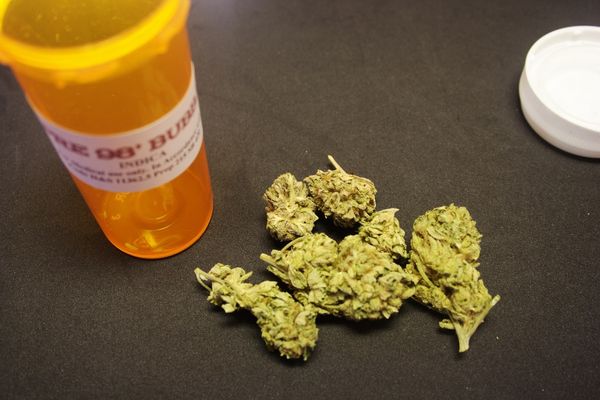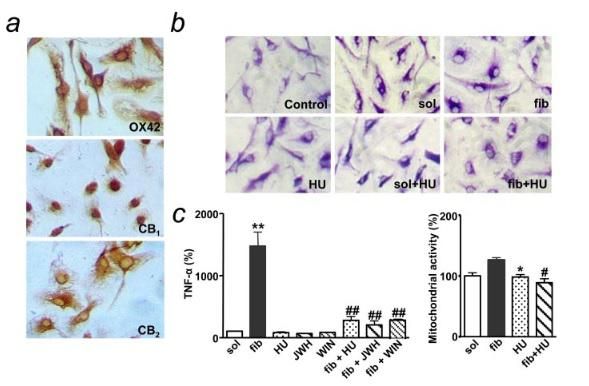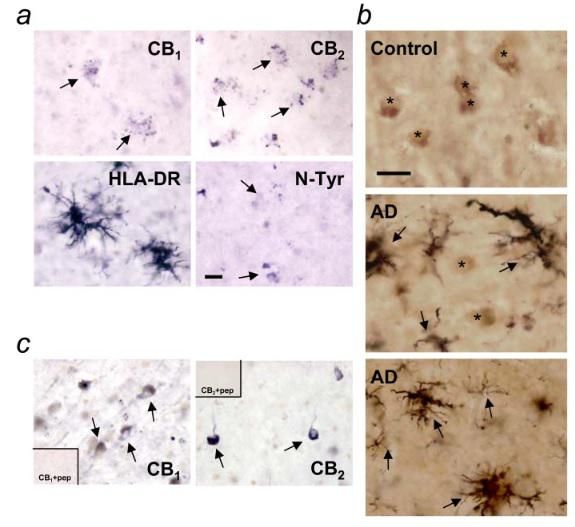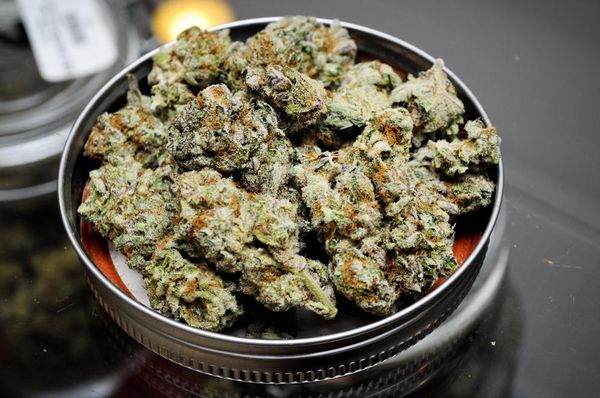- Some Spanish professionals, pioneers in their field, have been researching the numerous applications cannabinoids can have on Alzheimer's Disease: not only could they prevent it if they were used on humans, but they could also improve the quality of life of those who, unfortunately, can no longer can do anything to avert this malady.

One recent study (The potential therapeutic effects of THC on Alzheimer´s disease) published in Journal of Alzheimer's Disease (USA) suggests that treatment with THC, marijuana's main psychoactive component, could have therapeutic potential in the fight against Alzheimer's.
Specifically, the study demonstrates that THC can reduce the levels of a protein closely tied to symptoms suffered by patients of this disease, and could delay their advance. According to another study, published in the same journal, this component of marijuana may serve as a natural mechanism, generated by the body, that fights against the disease. There are even scientists who believe that smoking cannabis from early ages could prevent its onset.

Researcher Maria L. de Ceballos, at the CSIC's (Spanish National Research Council) Cajal Institute (Spain), has been studying cannabinoids as a possible treatment for the disease for almost 14 years.
Her first work (Prevention of Alzheimer´s Disease Pathology by Cannabinoids: Neuroprotection Mediated by Blockade of Microglial Activation) ground-breaking in the field, dates from 2005, and the professional told Dinafem that she is impressed by the number of studies conducted and advances made since then.
Ceballos explains that when a person has Alzheimer's, his brain becomes swollen, as he or she suffers from “neuroinflammation.” Her 2005 investigation demonstrated that cannabinoids have anti-inflammatory properties, and can mitigate the process that causes that swelling, thereby protecting neurons.
This is an argument that controverts those who regularly argue that cannabis damages the brain. In pharmacology, each effect depends on “the dose used and the time that one is going to use a given product,” the expert explains, such that the effects, both positive and negative, also depend on it.

For her research Ceballos does not use natural cannabinoids taken directly from the plant, but rather synthetic ones. Why? The answer is simple: synthetics are much more potent, so it is possible to use lower doses and achieve the same effects that would be obtained with a natural component.
And, unlike synthetics, natural cannabinoids do not dissolve in water, but rather in fat, which greatly complicates their administration. Finally, natural ones - such as THC - have more psychoactive effects, which is why clinical neurologists tend to oppose using them on human patients.
More applications than those that are known
Beyond its neuroprotective property, using cannabinoids in the treatment of incipient Alzheimer's patients can help to palliate other kinds of problems that usually accompany the disease. They have, for example, vascular properties, as they feature vasodilatory compounds; and they help to reduce the hypertension and cardiovascular alteration which those who suffer a chronic disease often experience.
Moreover, it is known that one of the diseases that foments the onset of Alzheimer's is diabetes. Today it is being demonstrated that cannabis canhelp to regulate sugar levels in the human body, especially the brain. “If cannabinoids can prevent or impede the contraction of diabetes, the risk of suffering Alzheimer's would be reduced.”

In all cases cannabinoids should be used for prevention, as once the disease is very advanced and many neurons have been lost (impossible to recover) it is almost impossible to find a solution. However, it is also true that this substance can mitigate certain problems for those suffering it.
Some examples? It improves people's conduct, preventing them from becoming aggressive; it favours sound sleep among patients who otherwise sleep very badly; it causes them to eat better, and to lose less weight…in short, it notably improves patients' quality of life.
Rats and mice, the only beneficiaries (for now)
To date the only Spanish study was conducted on rats and mice, with behavioural studies to detect if the animals' cognitive problems remit thanks to CBD.
Ceballos does not work with humans. She reports that, in order for clinical studies to be carried out, clinical neurologists will have to get involved “and they have not done so yet. It's a shame.”
She believes that this is due to a question of fear, but the fact that there are other studies with cannabinoids and diseases (like those which have been carried out with marijuana to fight certain cancerous tumours) gives her hope, leading her to think that perhaps the first experiments with people may be possible in the not so distant future.
“Although I believe that a greater problem exists, which is that the pharmaceutical laboratories don't seem very interested in this subject,” she explains. She says that until both parties become involved, clinics and pharmaceutical groups, it will not be possible to achieve more advanced results.

At a time when neurodegenerative diseases have no cure, could cannabinoids be the answer for the treatment of Alzheimer’s? The professional sees this as difficult “but not impossible.” And she criticizes that, “considering the medical and social problem that Alzheimer's poses, very little is invested.” She does not know the exact numbers, but states that the budgets for cancer research are at least ten times greater.
Ceballos explains that, thanks to the fact that an enormous amount of money is being invested, little by little cancer is being cured - something that is not the case with Alzheimer's, and certainly not when it comes to research involving cannabinoids. Is a problem the lack of confidence in this substance? The researcher doesn’t understand why; after all, morphine, a derivative of opium, is commonly prescribed to many patients, even in excess.
Thus, she finds it “incredible” that arguments are frequently invoked against “drug abuse” when somebody tries to introduce some derivative of marijuana into a health study. “That is not an argument, and in any case both products should be placed at the same level,” with cannabis in no case below morphine. “It's a question of ignorance,” she concludes.



Comments from our readers
Read comments in other languages:
Did you like this post?
Your opinion about our seeds is very important to us and can help other users a lot (your email address won't be made public).